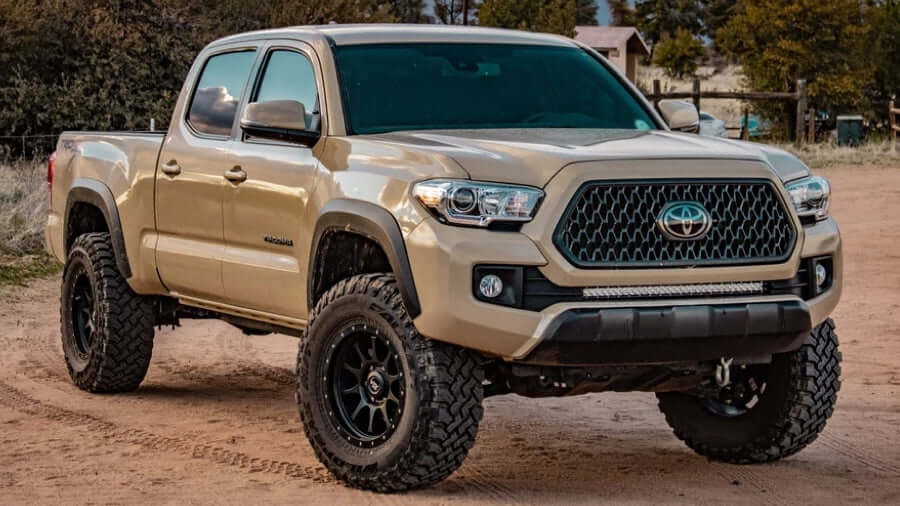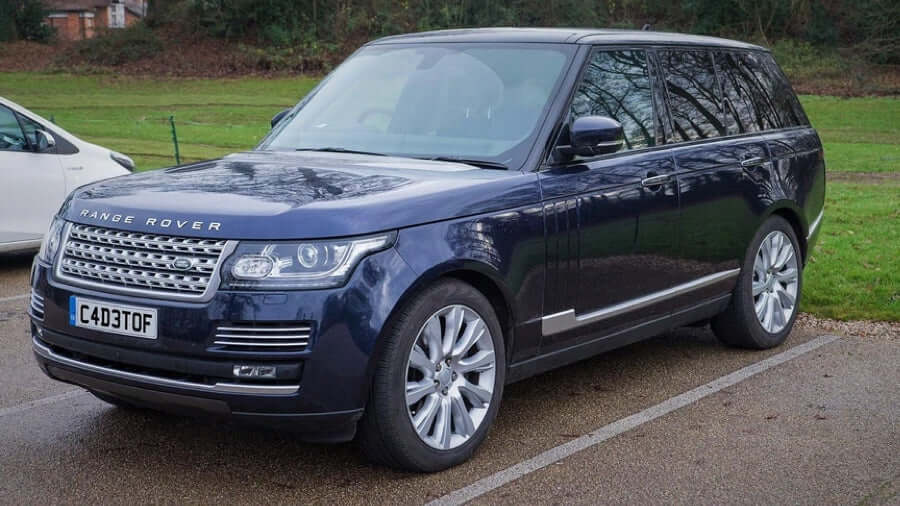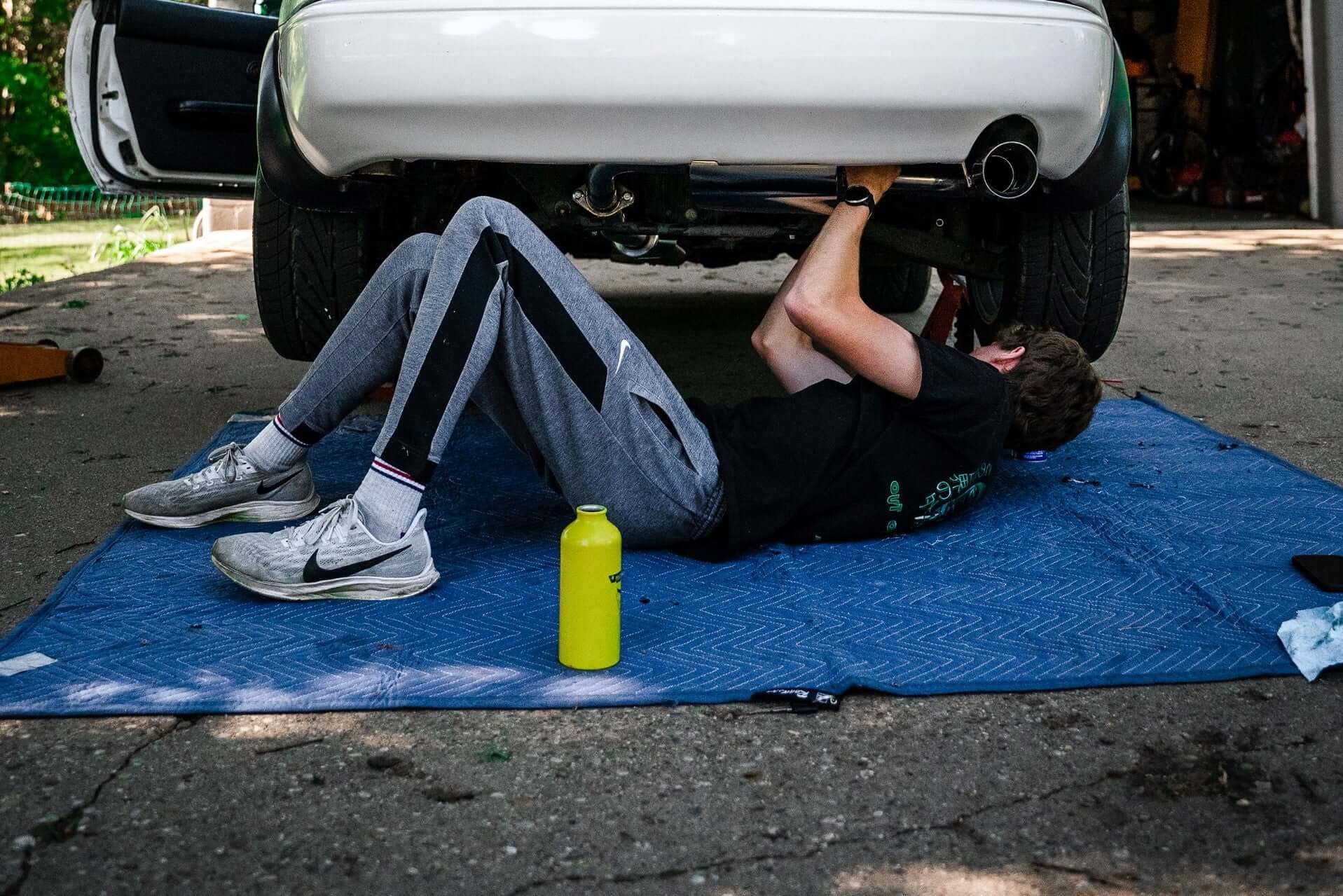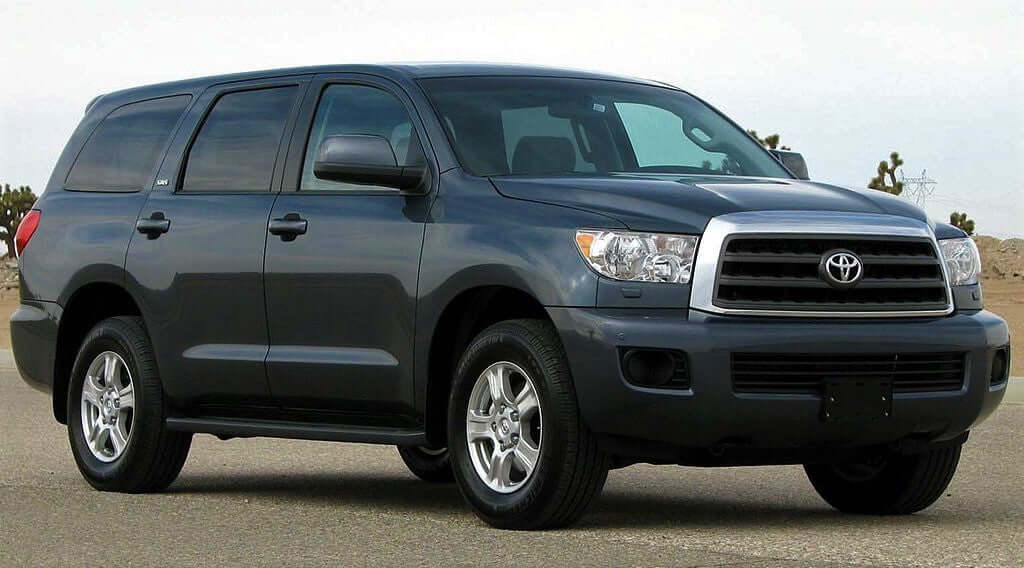There’s more than one way to level a truck, for sure, but some ways are better than others. These days, more and more, truck owners are turning to ReadyLIFT suspensions to get the ride height they want and need.
So while you may have heard of ReadyLIFT, especially if you’re a truck owner, you may still have a few questions. In this article, we’ll explore what, exactly, a ReadyLIFT suspension is and does and help you decide if it’s the right solution for you.
What is a ReadyLIFT suspension?
Simply put, ReadyLIFT is one of the premier leveling kits on the market. Leveling kits “level out” the front of your truck or SUV to be even in height with the rear of your vehicle.
Most automakers manufacture their trucks with what is known as a “rake.” This is when the front of the vehicle is lower than the rear. This is done with the idea that when there is a load in the rear of the truck, the truck will level out.
But not everyone is a fan of that rake, and often for good reason. Here are a few reasons why you might want to level out your vehicle.
- Off-road performance: One of the main reasons people level their vehicle is so that it can perform better in off-road situations. With a higher ground clearance, which means your truck or SUV will be better suited to drive through uneven and unknown terrain.
- Bigger tires: Due to the default design of your vehicle, you’re limited in the size tires you can install. Leveling lets people install bigger, more rugged tires than the stock setting allows.
- Front-end equipment: People who attach equipment like snow plows to the front of their vehicle benefit from the additional clearance.
- Looks: Let’s face it. Many people just like the look of a leveled truck. And that’s just as good a reason as any to use a ReadyLIFT suspension to level your vehicle.
Are there any disadvantages to leveling my truck or SUV?
Leveling a truck does come with a few disadvantages, but that’s true regardless of how you do it. No matter which kind or brand of kit you use, you might face the following drawbacks:
- Reduced gas mileage: Leveling or lifting your vehicle can lower your fuel economy, meaning it will cost more to drive your truck.
- Stiffer ride: A leveled truck will handle a little less smooth than at stock height. But depending on how much you lift your vehicle, the difference may not even be enough to notice.
- Miscalibrated odometer: If you increase the size of your tires, it will throw off your odometer’s calibration. However, it’s an easy one-time fix to change that.
What makes ReadyLIFT different from other leveling kits?
ReadyLIFT has been manufacturing leveling solutions for trucks and SUVs since 2006. All those years of experience have helped the company perfect its approach and find ideal solutions for scores of vehicles.
When it comes to leveling kits, ReadyLIFT has a few advantages over its competitors.
High-quality construction
Unlike other kits that are made with flimsy plastic components, ReadyLIFT manufactures its kits using top grade aluminum. The result is long-lasting, robust kits that don’t crack or wear out easily.
Precision engineering
Some manufacturers take an “a few sizes fits most” approach to making lift kits. But “good enough” isn’t good enough for ReadyLIFT. The engineers at ReadyLIFT fine tune each kit to be a perfect match for the vehicle they go with. That means you don’t have to worry about fitment issues or a ride that’s just not quite right.
Installation is reversible
Many leveling kits require you to make permanent changes to your vehicle to install them. If you don’t like how they ride, you’re more or less out of luck. But ReadyLIFT kits require no permanent modifications to your vehicle. That means if you’re not happy with your kit for whatever reason, you can remove it and your truck will go back to the way it was as if nothing happened.
Easy to install
Another major advantage of ReadyLIFT kits is that they’re designed to be easy to install. If you have any experience working on cars or with machinery, it shouldn’t be a problem to install them yourself. All you need are a few simple tools, a sturdy jack, and a few hours. If you’re not comfortable doing it yourself, though, installation at a service center will be quick, easy, and inexpensive.
Lifetime warranty
ReadyLIFT is a company that stands behind its products, and the company’s limited lifetime warranty included in each kit is their way of showing that. Depending on the kit, warranties last up to five years and 65,000 miles. That’s quality you can count on and peace of mind on the road.
Should I install a ReadyLIFT kit on my truck?
If you’re thinking about leveling your truck, ReadyLIFT is one of the very best ways to do that. Between the quality of the kits, the ease of installation, and dedicated customer support, you’d be hard-pressed to find a better leveling solution.
The company now provides kits for a huge array of vehicles, so you’ll likely find a kit that fits yours. You can use the tool below to search for your make, model, and year.
If you need some more information, advice, or help making sure you’re getting exactly what you need, our team is always here to help. Just call 866-317-1579 to reach one of our Suspension Experts.
ReadyLIFT FAQs
Here are a few common questions people have about ReadyLIFT suspensions.
Are ReadyLIFT kits any good?
ReadyLIFT is one of the most well-regarded leveling kit manufacturers in the industry. The company’s kits are noted for their high-quality construction and precise engineering.
What does SST stand for ReadyLIFT?
SST—or Smart Suspension Technology® —is ReadyLIFT’s patented technology that allows the kits to be installed without permanent modifications and provide an ideal leveled ride.
Are leveling kits bad for your suspension?
Leveling kits can be rough on your car’s suspension—but they don’t have to be. That’s because they can change a vehicle’s geometry and put additional stress on suspension components. But when a leveling kit is properly engineered and installed, there shouldn’t be much of a difference.
What's the difference between a leveling kit and a lift kit?
Leveling kits and lift kits are similar but not the same. Leveling kits bring your vehicle’s front end up to the same height as the rear. A lift kit, on the other hand, raises the entire vehicle.





